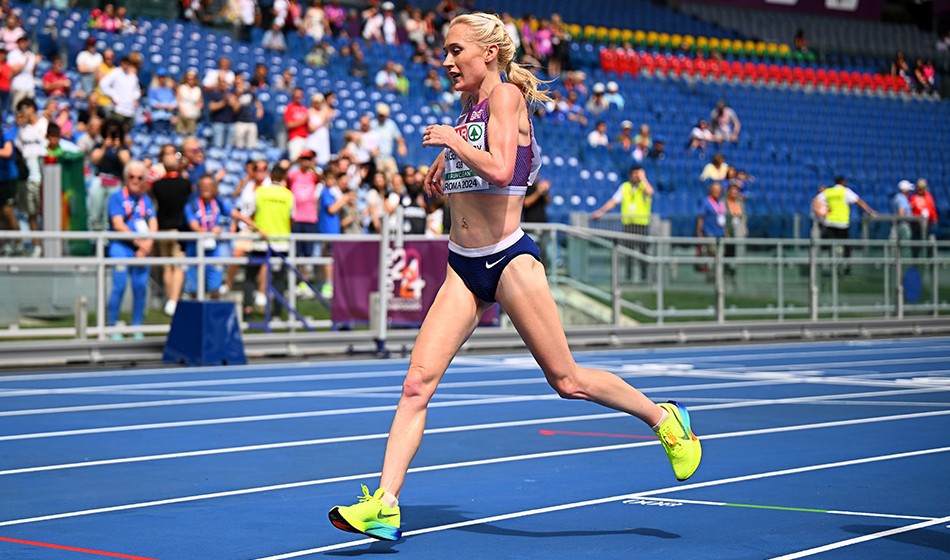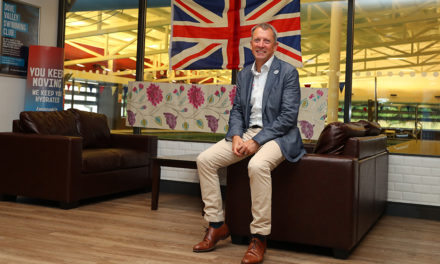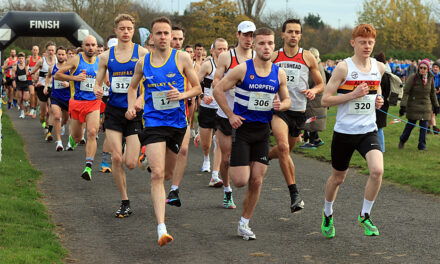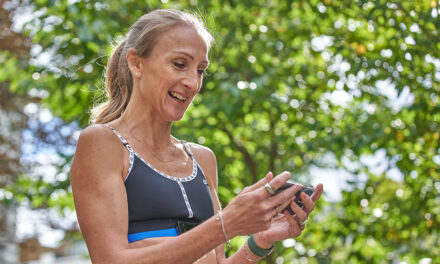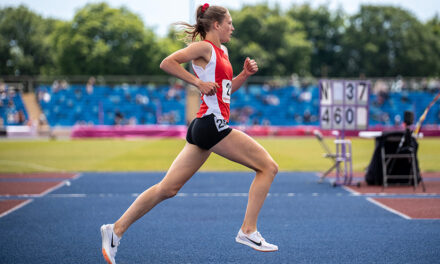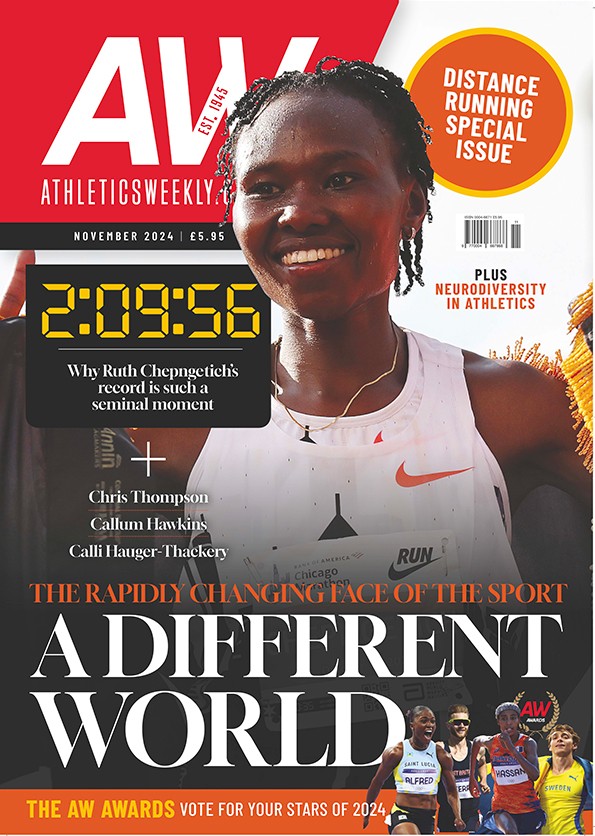After a painful Olympic experience, the British distance runner returned to clock 2:21:24 in Berlin in September
Calli Hauger-Thackery just couldn’t let all of her hard work go to waste. Yes, there were racing options available later in the year and the pain of the Paris Olympics remained raw, but there were demons to slay and many, many training miles in the tank.
So it was that, with only a week-and-a-half until race day, she decided to see if it might be possible to enter the Berlin Marathon. Having spoken nicely to some contacts, the 31-year-old found herself going for a Sunday run with a difference in Germany on September 29.
Simply setting herself another 26.2-mile mission barely six weeks after what was a truly traumatic experience in the French capital was a big deal in itself. While Sifan Hassan and Tigist Assefa had been waging war at the front of the field on the Versailles course on August 11, Hauger-Thackery had been fighting a battle simply to stay upright.
She knew even before the race had begun that something was wrong. Scorching weather was a near constant feature of the Paris Games, but the mercury was only nudging 16 degrees centigrade as the athletes gathered at the start. What should have represented a pleasant temperature instead felt more like a furnace to the European half-marathon bronze medallist, who found herself going in search of ice packs to cool herself down. More alarm bells began to ring when the race got underway.

Calli Hauger-Thackery in lead group (Getty)
“It was horrible because it was way too early,” says Hauger-Thackery of the discomfort she began to feel. “I was really dizzy, too. Because I had been so strong in my running and there was never one training session where I underperformed, I thought: ‘I’ll get through this. It’ll be fine’, but the taper, unfortunately, just didn’t do its normal job this time because of everything that was going on. Stress is stress, it will unfortunately take over, and it did. I thought I was tough enough to get through it but my body was doing some crazy things. I just hit absolute exhaustion. I could barely stand up.”
So much so that, when she reached the 17th mile, by the side of the road she fell into the arms of her husband and coach Nick. Her Olympic race was run. “I just wanted to sleep for a week,” she recalls.
It was indeed her body’s way of telling her it had had enough – not surprising given how difficult the preceding weeks had been. Earlier this year Hauger-Thackery’s mother had been diagnosed with breast cancer which, at one stage, had looked like it was terminal.
“We were being told the worst, so I was thinking: ‘Oh my God, I could lose my mum this year’ and I was freaking out,” says the British 5km champion. “I didn’t sleep for days and the not knowing is even worse. I’m normally a positive person, but it wasn’t looking good.”
Thankfully, Rachel – a former sprinter – has responded to treatment and is in a far better place now. “It was just a really tough time,” adds her daughter. “And an unfortunate time for everything to unfold how it did. But life gets messy. It’s not always rainbows and butterflies. And we are human. My training was going absolutely immensely and that’s why I just thought that would take over. But I knew I was losing a lot of sleep and then, on top of that, when you lose a lot of sleep, you also lose your appetite. In the marathon, you can’t get away with that.”

Calli Thackery (Getty)
Like her mother, Hauger-Thackery carries the PALB2 gene which has been shown to increase the risk of breast cancer. It means she too undergoes regular medical checks and, that process represents another mental challenge to contend with. It made the finish line feeling at the Brandenburg Gate all the sweeter.
The Yorkshirewoman had shown herself to be a marathon natural at the end of last year, clocking 2:22:17 on her debut over the distance at the McKirdy Micro Marathon in New York – a time that secured her Olympic qualification.
Such a strong start, coupled with good training and that bronze medal in the half marathon at the European Championships in Rome in June (Britain took team gold) all made the Paris experience more difficult to take. To bounce back with a personal best run of 2:21:24, finish first European woman and seventh place overall in Berlin, then, felt like vindication.
“I’m happy I could pull off a [true] reflection of my running,” says Hauger-Thackery, the second-fastest British female marathon runner in history behind Paula Radcliffe. “I trained so hard up to Paris, so I was like: ‘I can’t let that go to waste’. That’s why I did one so soon after.”

» This is an abridged version of a feature that appeared in the November issue of AW magazine. Subscribe to AW magazine here, check out our new podcast here or sign up to our digital archive of back issues from 1945 to the present day here

